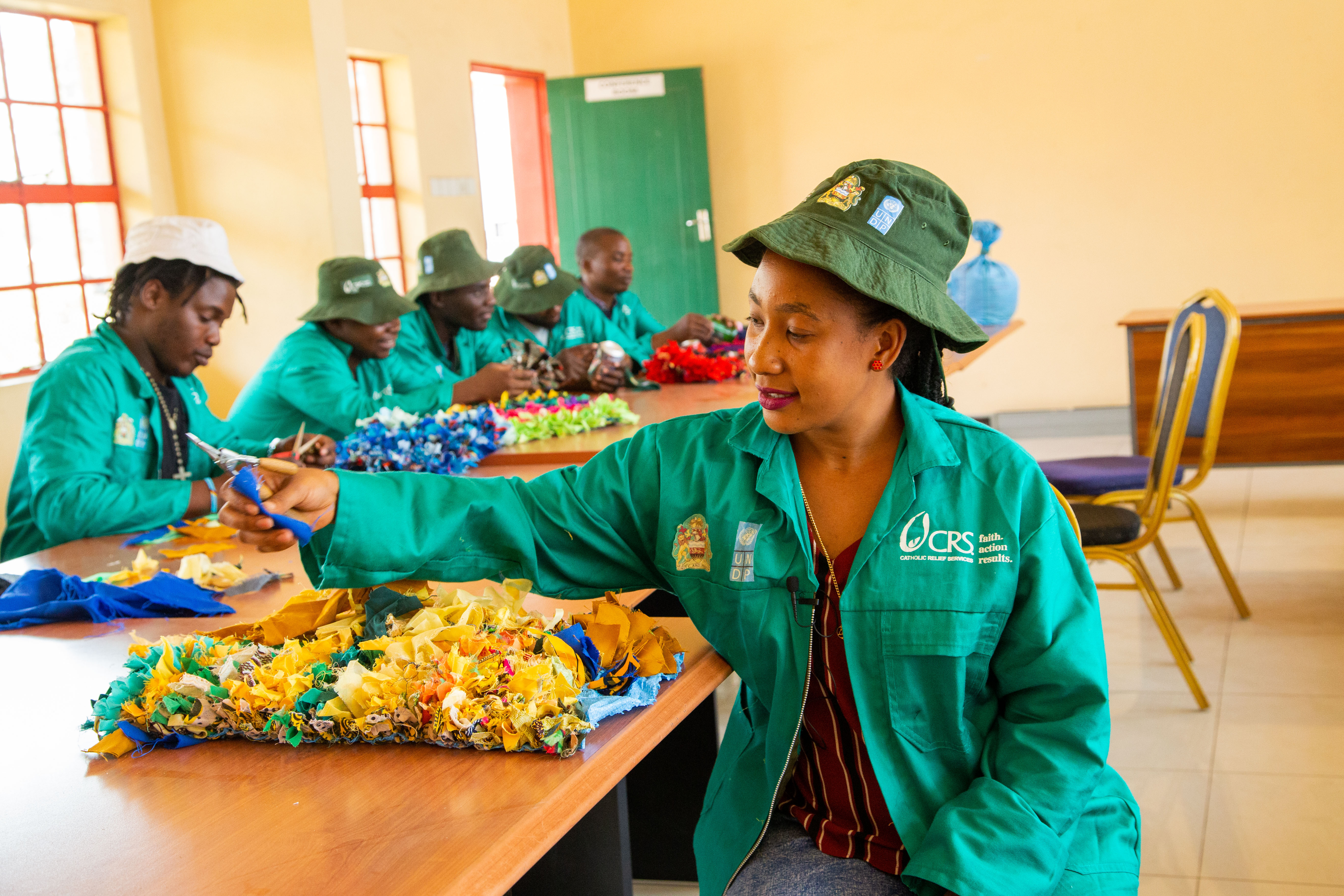Turning trash into treasure: UNDP investing in waste management to create youth opportunities
November 16, 2022

Despite some of the progress in the interventions to curb waste management challenges in Malawi, there is still rampant indiscriminate disposal of waste in open spaces, roadsides, rivers, and storm water drains.
Developing an effective waste management system through prevention, reduction, and recycling is one of the key goals under the Sustainable development Goals.
To help strengthen Malawi’s sustainable waste management, UNDP in partnership with the Government of Malawi and Catholic Relief Services (CRS), rolled out the Malawi Green Corps (MGC) Initiative in 10 districts of Lilongwe, Salima, Dedza, Ntcheu Blantyre, Zomba, Mangochi, Machinga, Mzimba and Karonga.
With support from UNDP’s recovery programme, the MGC initiative is engaging 2000 youths to rehabilitate 5000 hectares of degraded areas and waste hotspots while providing the youth with green entrepreneurship capacities.
The Malawi Green Corps targets youth members between the ages of 18 to 35, who are selected for training opportunities in forestry, waste management, landscape restoration and green entrepreneurship. Under waste management, youth are trained in management of domestic waste, clearance of dumping sites and opportunities for turning waste into income through repurposing, recycling, upcycling.
“People do not care about where they throw their waste and will usually litter everywhere, and so we collect the waste and reuse it as raw materials for doormats, chandeliers, tumblers and other products,” explains a 26-year-old Louise Patel of Mangochi.
Patel’s 15-member youth group collects waste from illegal dumpsites, within Mangochi District area. The waste materials are thereafter repurposed by making things like tumblers from bottles or sold to other sellers.
The group members who were trained under the MGC project also share the skills and knowledge to create more awareness in their communities on how to take better care of the environment.
In Salima, the project has also motivated the youth to conserve the environment including making briquettes from wastepaper and other agricultural wastes.
In his remarks, Salima Link for Sustainable Development chairperson Noel Hopusi advises the youth to work hard and take advantage of the financial opportunities that is found in waste and become economically empowered.
“Before the Malawi Green Corps initiative, some of the youths were engaging in risky behaviors like drug abuse and alcoholism because they had nothing to do,” says Hopusi.
“We have benefited a lot from the knowledge Samantha Ludik has given us as regards converting waste into usable products,” he says.
Ludik, is a passionate young environmentalist based in Senga Bay in Salima, who trains the youth to reduce, reuse and recycle waste. She hails MGC project for providing the youth with in-depth knowledge on the importance of sustainable waste management.
UNDP Resident Representative Shigeki Komatsubara said that it is encouraging to witness the Project bringing the youth together to share skills and lessons on how to further improve and ensure more innovation in their products.
Mr. Komatsubara said the MGC groups are key in creating opportunities for youth to create business models that help create more jobs in Malawi.
The Malawi Green Corps (MGC) is a two-year (2022-2023) initiative aimed at supporting ongoing efforts by the Government of Malawi to safeguard and expand socio-economic opportunities across the country, particularly for young women and men, while accelerating a green economic transition through sustainable natural resources management.

 Locations
Locations



